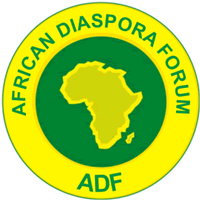Our Commissions

Anti Crime
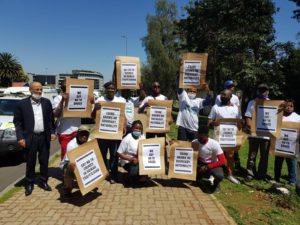
The main aim of this commission is to effect and promote anti-crime initiatives that will help South Africa to combat the scourge of criminality and to change the misperception that most migrants are involved in crime. Disproportionally, migrants are also victims of crime, especially those who run spaza shops are prone to violent robberies. The commission is tasked to come up with measures to provide greater personal security to migrants.
Key programme activities include:
- Participation in Community Policing Forums through actively placing our members from the various migrant communities into their local CPFs. We need to ensure that CPF structures are well briefed on the aims of the ADF as regards migrant’s participation. To this effect we need to have an information campaign aimed at the leadership and membership of the CPFs and to their counterparts and liaison staff in the SAPS, the NPA and other law enforcement agencies including the local police in various cities across South Africa;
- Education of migrant communities on anti-crime measures that they as community members can actively participate in and which will include Whistleblowing; Not buying stolen goods; Setting up liaison committees with law enforcement agencies; Advocating good security measures at their homes and places of work; Advocating use of anti-crime hotlines; Advocating street committees in various communities to monitor security situations in terms of preventing crime.

Social Cohesion
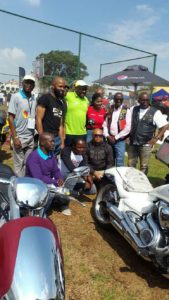
This commission is tasked to promote and effect social cohesion as an integral part of the process that ensure migrants and local communities have harmonious relations and that integration into local communities come about in a manner that is beneficial to the society as a whole. The unity of the diversity of people that populate South Africa is a cherished goal of South Africa’s constitution and the commission on cohesion and integration can contribute significantly to the promotion of this vitally necessary process on an ongoing basis. Initiatives promoting social cohesion and integration can work in schools, communities and in all other spheres of interaction including working with local political structures and media.
Key objectives for social cohesion and integration:
*Promoting pan Africanism through events and educational and advocacy drives and using sport, arts and culture as tools to promote greater cohesion and tolerance;
*Ensuring migrants are able to identify South African symbols like the country’s national flower flag and memorise the national anthem;
*Challenging regressive and reactionary discourses in communities through debates, town hall meetings, positive articles in the press and items on radio and TV;
*Promote and educate on commonalities between South Africans and migrants. An example of this could be raising awareness of the commonality of South African and migrant women who suffer the same disadvantages (inequality, poverty and joblessness);
*Develop a special and vigorous response to those espousing xenophobia and hate especially of migrants;
*Promote the concept of the spatial integration of migrants and oppose ghettoization in urban residential areas;
*Advance and promote cultural exchanges by using the arts and other means. This will include:
- Developing an appreciation of pan-African arts and culture and to infuse into the local scene the rich African cultural and arts traditions available in all migrant communities.
Specific objectives include:
- Carnival/Africa Day on May 25;
- Exposing South Africans to migrant cuisine;
- Fashion shows and demonstration of other fashion items;
- Children’s programme for exchanges at schools
Specific objectives on sport could include:
- Develop migrant football teams and other sports teams at various age levels;
- Join established leagues and at different age levels;
- Develop capacity of of sport coaches in the migrant community;
- Develop capacity of migrants who have skills or a desire to act as officials ranging from refs and linesmen to management of teams and who can join in the management structures of existing sports codes;
- Establish at least one sports event for the coming year

Media & Publicity
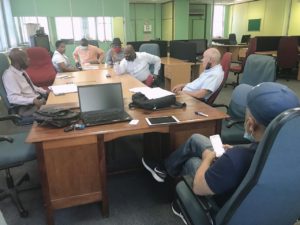
The Commission on media and publicity is tasked to spearhead a nation-wide information campaign largely devoted to the highlighting of the positive contribution being made by migrants to the local society and economy;
Objectives:
- To work with research and academic entities to identify topics, facts and figures and case studies to be written up as thought leaders and press articles;
- To develop a vigorous content programme to feed the electronic media and multiple social media platforms.

Women & Children
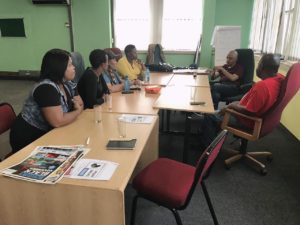 It is acknowledged in South Africa that gender based violence (GBV) is a serious problem that needs national attention. GBV activists, including migrant organisations like the ADF, have called for and pushed corporates and the South African government to take stronger action action against the scourge of violence and abuse of women and children. This compelled South Africa’s President Cyril Ramaphosa in 2019 to make a public statement in Parliament about the country’s resolve to address the issue.
It is acknowledged in South Africa that gender based violence (GBV) is a serious problem that needs national attention. GBV activists, including migrant organisations like the ADF, have called for and pushed corporates and the South African government to take stronger action action against the scourge of violence and abuse of women and children. This compelled South Africa’s President Cyril Ramaphosa in 2019 to make a public statement in Parliament about the country’s resolve to address the issue.
Despite the president’s statement, concrete actions regarding justice for abused women and children backed by law and a budget to hold perpetrators of GBV accountable, is still lacking.
Migrant women and children are, in fact, the worst off. They can be categorized as a sub-class in the South African hierarchical system with white males at the top and migrant women and children, because of their lack of rights and vulnerability, at the bottom.
The abuse of migrant women and children is more nuanced because of the situation migrants find themselves in in general. For example, during the recent xenophobia violence of August-November 2019 while migrants were subjected to random attacks generally, many migrant women who commute to work via public means were in addition subjected to sexual harassments and rapes and could not report those incidents because of the tense climate around the time.
When the violence eventually subsided, the victims had to fend for themselves, the priority being to recover their livelihoods and rebuilding their lives. In the process, this silence added to their trauma and contributed to their and their children’s continued stay on the margins of society.
The ADF is particularly sensitive and concerned about the plight of migrant women and children. In this regard, it has established a Women and Childrens Commission with the intention to:
- To promote unity between the South African victims of gender-based violence and abused women in the migrant community;
- The Commission on Women and Children will be particularly charged with providing legal, morale and other support to abused women and children through the ADF’s advice office;
- Address the documentation challenges migrant women, children and unaccompanied minors face at the department of Home affairs as a matter of urgency. The challenges surrounding the lack of documentation prevent, among other things, children from accessing education and women from accessing healthcare in general and reproductive healthcare in particular.
To achieve the above objectives, The ADF’s Commission on Women and Children aims to:
- Appoint a paralegal person part-time (or fulltime) to directly deal with issues surrounding and affecting women and children;
- Launch an information campaign among migrant women and children to educate them about their rights;
- Mobilise migrant women across the country as part of the ADF’s mobilisation campaign and encourage them to form local chapters;
- Seek partnerships with likeminded local organisations to, among other things, raise awareness of women’s and children’s issues in South Africa;
- Lobby and engage the South African departments of health, education and home affairs with a particular focus on documentation, access to public healthcare facilities;
- Explore and embark on economic empowerment projects for migrant women that aim to give them a chance to have sustainable incomes and livelihoods and enable them to look after their families and children.
- Work with South African NGOs in the short term to provide refuge and shelter for abused women and children and in the long-term the ADF will explore the possibility of setting up shelters specifically for abused migrant women and children.

Emergency Relief
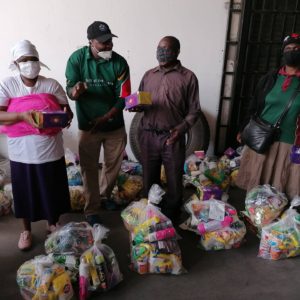 The commission is tasked to devise and implement a programme which will provide emergency relief to migrants in distress in the form of food, legal, medical, accommodation and other support. As part of our advice Office services, the commission must assist in building capacity to accept pleas for help in terms of the above and also have staff trained to assess the needs of people who come to the ADF advice for help.
The commission is tasked to devise and implement a programme which will provide emergency relief to migrants in distress in the form of food, legal, medical, accommodation and other support. As part of our advice Office services, the commission must assist in building capacity to accept pleas for help in terms of the above and also have staff trained to assess the needs of people who come to the ADF advice for help.
Specific objectives:
- Prepare a programmed dedicated to providing relief packs and other emergency resources to migrants in distress;
- Foster relations and partnerships with people and organisations able to assist with emergency relief;
- create a database of partner organisations and make sure the data base is available to migrant communities through easy access via phones apps or other forms of technology;
- Develop a capability to respond promptly to emergency situations that develop in communities especially those not located in South Africa’s urban areas.

Business Sustainability
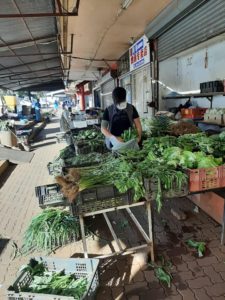
This commission is tasked to assist in the integration of migrant businesses into the local economy with a particular emphasis on educating migrants about local business regulations, health and municipal by-laws. Also to assist these businesses with business development through training, and through other business development programmes. Among its specific objectives are:
- Training and co-ordination of small business owners;
- Set up meetings/workshops/seminars between local and migrant small business practitioners to share ideas, information and effect skills transfers;
- To explore sustainable agricultural initiatives with a particular emphasis of ensuring food security among migrants;
- Explore the possibility of establishing co-operatives as joint ventures between migrants and local business persons;
- Promotion of ‘Buy SA’ among migrants;
- To Encourage the employment of local people by migrants;
- To promote ethical business practices among migrant business persons;
- to set up a data base of migrant owned businesses;
- To encourage co-operation between migrant and local business forums to the benefit of all;
- To encourage tax and legal compliance among migrant business persons and communities.
